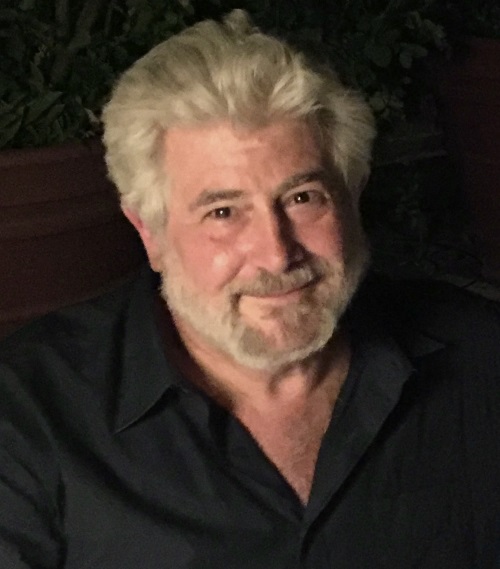
BY: Richard E. Vatz, Ph.D. and Jeffrey A. Schaler, Ph.D.
Higher education almost unanimously believes that minorities, except for Asians, are being so constantly discriminated against that compensatory actions must be installed and increased for them and them only.
If one looks at diversity statements from the academy across the country, he or she will find the misleading goal “diversity” bandied about as if its meaning is self-evident or applied exclusively to racial, gender and sometimes – only sometimes – religious groups.
No one is concerned that conservatives’ lots are not happy ones.
The consistent use of the disingenuous self-description of “diversity” not only ignores ideological diversity, but actively engages in what some refer to as the “erasism” of conservatives.
The academy is trying to minimize conservatism and the number of conservatives on campus and within national scholarly organizations, in particular in the humanities and social sciences.
For one of us, Towson University Distinguished Professor of Rhetoric and Communication Richard Vatz, the experience centers primarily on the National Communication Association.
The NCA used to have a listserv, called CRTNET, which stands for Communication, Research and Theory Network. It supplied announcements and free-wheeling discussions of its members’ political viewpoints.
 But the discussions got ugly in this political climate. An effort to grant more minorities more awards created a firestorm within the group, some members left in protest, and Vatz (pictured) was accused of racism for describing the effort as a political power play. He threatened to sue for defamation, and shortly thereafter the listserv was shut down.
But the discussions got ugly in this political climate. An effort to grant more minorities more awards created a firestorm within the group, some members left in protest, and Vatz (pictured) was accused of racism for describing the effort as a political power play. He threatened to sue for defamation, and shortly thereafter the listserv was shut down.
That situation, which took place in 2019, left Vatz without a venue to defend himself among his peers and the National Communication Association without a discussion forum for communication among its members.
So much for freedom of speech in the National Communication Association.
The National Communication Association’s political communication division also put out a statement in July 2020 formally in support of Black Lives Matter. Vatz emailed his concerns to the director of that division voicing concern over BLM’s opposition to the nuclear family and its other controversial views and suggesting more discussion among NCA members should have taken place before the statement was issued. Vatz’s concerns were completely ignored.
Meanwhile, the association at its national conventions hosts keynote speeches year after year introduced by its race-obsessed executive director and compliant presidents. Just about every year they are political, nasty and unclever, and focused in large part on – again – its limited definition of diversity.
Its conventions are nearly 100 percent conservative-title-free among its 300+ papers and panels, and conservatives honored for their lifelong work, such as Vatz, are consigned to the final panel on the final day, when all have gone home, as was the case in 2019.
A second case study centers on the experiences of Jeffrey Schaler, a retired professor at American University’s School of Public Affairs. His story of anti-conservative bias and “erasism” dates back to about seven years ago, when colleagues refused to renew his contract.
Despite teaching at American University since 1990, during which Schaler’s classes were called  “legendary” by an academic advisor and he consistently received high student recommendations, he found that academic freedom was nothing more than a myth.
“legendary” by an academic advisor and he consistently received high student recommendations, he found that academic freedom was nothing more than a myth.
The point of contention was Schaler’s connection to psychiatrist Dr. Thomas Szasz, a revered but liberal-detested psychiatric critic who argued in dozens of books, speeches and other materials that mental illness is a metaphor, that people are crazy but not ill. Szasz is considered the preeminent critic of organizational psychiatry.
And Schaler (pictured) taught on his works consistently in his classes, although the professor always allowed students to disagree and debate the topic, and welcomed give and take on the topic.
But most of Schaler’s peers did not want him to bring up the topic in his classes because they feel that it disqualifies psychology as an academic field.
During one university-wide lecture, Schaler explained the purported myths of a genetic basis for mental illness. A psychology professor in attendance became so irate that he interrupted the lecture shouting that the gene had been found and that Schaler was teaching misinformation. Schaler let him speak and then said, “please, tell us, what is the gene or allele you say has been discovered.” The professor became increasingly angry as he said he did not know. Schaler responded: “You don’t know because one does not exist.” The professor stormed out of the lecture, furious.
One portion of one of Schaler’s courses also referenced the Nazi use of medical rhetoric in the past in Germany and the Soviet Union to justify deprivation of liberty. Schaler organized and accompanied students on required field trips to the United States Holocaust Memorial Museum in D.C.
The then-chair of the department of Justice, Law and Society told Schaler he could not require the field trips, because “the experience would be too traumatic for the students.” He also argued traveling to the museum from campus was too dangerous, despite the fact that students relied on the metro system for daily travel to class and home. After debate and compromise, the field trip was allowed to remain with precautions.
Another point of contention? Schaler required students to read F. A. Hayek’s book “The Road to Serfdom.” Several students alleged that other professors, mainly feminist socialists, punished the students who had been in this class for criticizing socialism and arguing for free market capitalism. Disagreement with these professors was absolutely forbidden.
Eventually, senior faculty won, and pushed Schaler out of AU.
These two case studies illustrate that conservatives and conservatism are generally discouraged in the academy. These two examples represent just a tiny fraction of what center-right scholars face every day in higher education.
The anti-conservative bias and erasism in higher education, most prominent in the social sciences and humanities, have tremendous political effects. Students are majorly liberal and progressive through the end of their undergraduate education, often never hearing of major conservative or libertarian thought or perspectives.
To slowly but surely solve the problem, colleges and universities must first recognize the values of supporting the marketplace of ideas and academic freedom in the university. Unfortunately it’s taking lawsuits and forced legislation to effect such changes, but it should come as a natural outcome of the values of the university.
Arguments on ideology cannot be ended with, “That’s just conservative talking points. Q.E.D.”
To end on a pessimistic note, the authors consistently try to engage academic listeners on this topic, and, with the exception of one AAUP meeting at one university in the last 10 years, there has been no academic audience that has even entertained the slightest acknowledgement that there is a problem, much less that anything should be done to rectify it.
Richard E. Vatz, Ph.D. is the Distinguished Professor of Rhetoric and Communication at Towson University. He served on Towson’s Academic Senate for over 40 years, the university’s longest serving member, and has served many terms on the National Communication Association’s main legislative body. He is author of The Only Authentic Book of Persuasion: the Agenda-Spin Model (LAD Custom Publishing, 2021) and with Schaler is the co-editor of Thomas S. Szasz: the Man and His Ideas (Transaction Publishers, 2017).
Jeffrey A. Schaler, Ph,D, MEd, is a developmental psychologist in private practice as an existential psychoanalyst since 1975. He is a retired professor at American University’s School of Public Affairs and the psychology faculty at Johns Hopkins University. He is the author or editor of seven books and the former Editor in Chief for eight years of Current Psychology. He lives in Ellicott City, Md.
IMAGE: Spiro Inc. / Shutterstock
Like The College Fix on Facebook / Follow us on Twitter





Please join the conversation about our stories on Facebook, Twitter, Instagram, Reddit, MeWe, Rumble, Gab, Minds and Gettr.